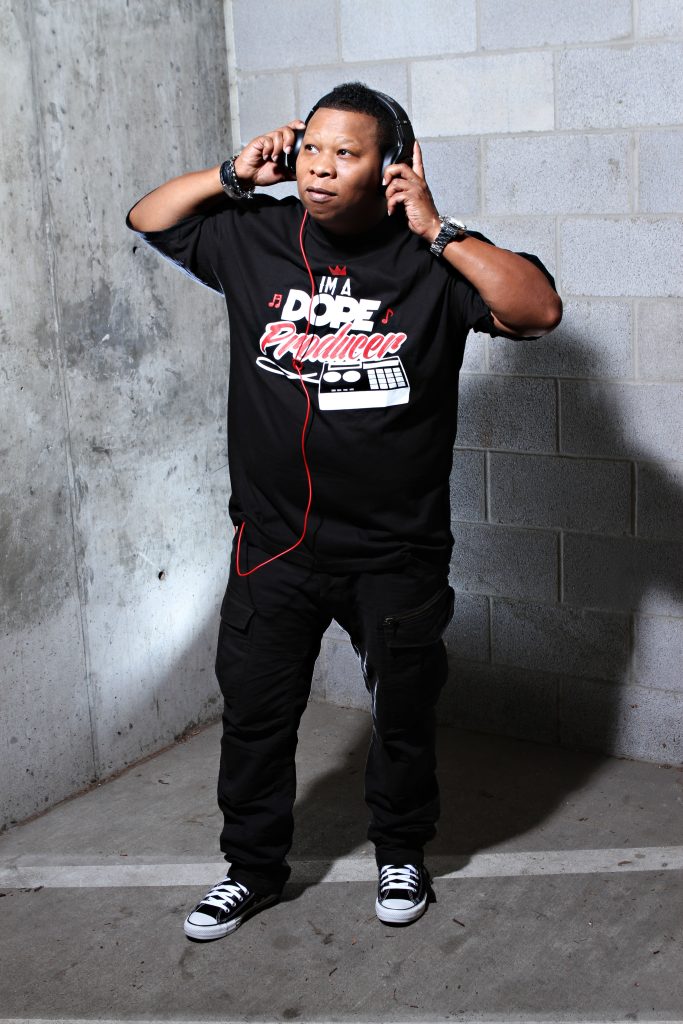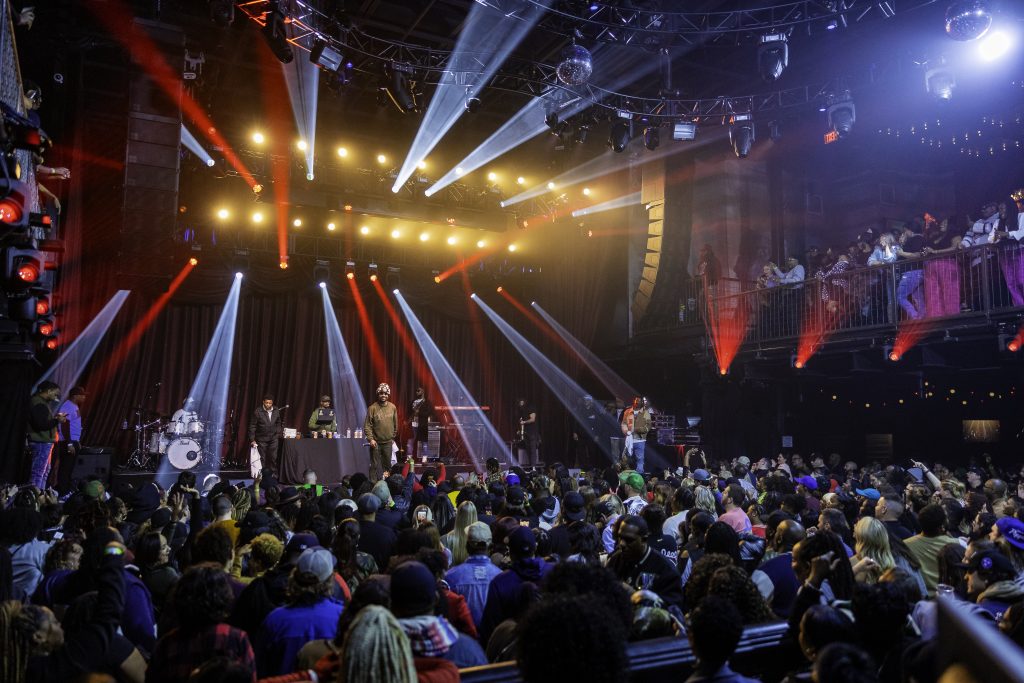
Simply put, hip-hop might not be the same without Juvenile.
Over nearly three decades, the multi platinum record-breaking New Orleans icon served up a string of classic albums, influenced two generations of stars, and pioneered a sound rooted in Louisiana bounce, yet carried by worldwide rap appeal and ambition. Like all timeless stories though, his stretches back to humble beginnings in the neighborhood his music put on the map: the Magnolia Projects. As if predisposed by destiny to pick up a microphone, he heard Melle Mel’s verse on “The Message” by Grandmaster Flash & The Furious Five, commenced spitting, and never stopped since…
“That’s really when it all started,” he recalls. “I heard Melle Mel saying, ‘Don’t push me, ‘cuz I’m close to the edge’, and that was it. I was only seven-years-old, but I knew I had to rap.”
He made local waves by appearing on DJ Jimi’s “It’s Jimi” in 1991 before bringing a national spotlight to the burgeoning bounce music style on his breakthrough “Bounce for the Juvenile.” After building a fan base on his 1995 debut Being Myself, the production of Mannie Fresh caught his ear, and nothing would be the same. At the time, the in-house Cash Money Records producer cooked up “Drag ‘Em ‘N’ tha River” for UNLV—a group Juvenile brought to the label.
In response, Juvenile recorded “Set It Off” and knew he “had to get with Mannie Fresh.”
“At the beginning, I truly came to Cash Money, because of Mannie Fresh,” he recalls. “I knew his beats were bigger than most artists. There was something there.”
There definitely was…
After his Cash Money Records debut Solja Rags, he crafted an era-defining opus in the form of 400 Degreez. Not only did it go quadruple-platinum, but it also became “the best-selling album in Cash Money Records History.” It produced staples such as the title track, “Ha” (which JAY-Z notably remixed), and “Back That Azz Up.” The latter would be sampled by everyone from Drake to City Girls. The Ringer lauded 400 Degreez among the “20 Best Southern Rap Albums Ever” behind only UGK’s Ridin’ Dirty and OutKast’s Aquemini. Pitchfork bestowed a rare 9.4-out-of-10 rating upon the record, and Kendrick Lamar cited it as one of his “Favorite Albums” in Complex and went so far as to claim, “They had the West Coast on smash. We definitely tried to be like them.” The heat spread far and wide across the United States.
“I remember I had a show with Funkmaster Flex in the Tunnel in New York city around the time 400 Degreez came out,” he recalls. “Everybody told me, ‘Don’t sing no other song, but ‘Ha’. If you sing anything else, they might jump on you and beat y’all up!’ I sang ‘Ha’ for forty minutes straight. It was the hardest place for any artist from the South to break into, but I did. It really broke the mold.”
Around the same time, Juvenile comprised The Hot Boys alongside Lil Wayne, B.G., and Turk. Together, they smashed charts with the Get It How U Live! [1997] and the platinum Guerilla Warfare [1999]. His next solo offering, Tha G-Code, went double-platinum followed by the platinum Project English. Meanwhile, 2003’s Juve The Great emerged as another unsung platinum classic as “Slow Motion” [feat. Soulja Slim] topped the Billboard Hot 100 at #1 for two weeks. He maintained a prolific pace in the ensuing years and collaborated with everyone from Future to Yo Gotti before reuniting with Cash Money Records.
“It’s more like a family reunion than anything,” he smiles. “It’s a friendship that never should’ve separated. Back in the day, Baby and I were always really tight. It’s tighter now. We think differently. We know when we hit the studio, it’s time to work. In the nineties, it was more about trying to control the industry and be at the forefront. We’re not trying to be better than everything out there; we’re just trying to show our fanbase we can still make good music. We have a great chemistry and always have. I thought it was a good idea for him and I to do a project together. He agreed. It was something we wanted to do forever, but never got around to it. I want him to talk that shit. I do my thing. Do your thing brother. That’s what makes our chemistry great.”
The chemistry thrives on their 2019 first full-length collaborative album, J.A.G.It boldly extended Juvenile’s own legacy with unanimous praise from Pitchfork, Rolling Stone, and Billboard as the singles “Just Another Gangsta” and “Dreams” [feat. NLE Choppa] tallied over 20 million total streams and views. Moreover, it preceded the stage for another collaborative effort and an O.G. Cash Money Records reunion on “Ride Dat” [feat. Lil Wayne].
Juvenile also inspires the next generation as his song Young Juve picks up the microphone for a bevy of upcoming singles.
In the end, Juvenile continues to shape and spearhead the future of hip-hop.
“I just want people to enjoy the music,” he leaves off. “I want to keep making good music. It’s all about a positive mood. Birdman and I are going to continue this. We’ve got a whole new breath of fresh air coming from my way. We’re going to get this bread.”

Mannie Fresh
Mannie Fresh is known to fans and throughout the music industry as a genre-defining producer, artist and entertainer. He started out as one of the best DJs in New Orleans and is now multi-platinum and Grammy-nominated.
Responsible for creating hits with such acclaimed artists as UGK, Trina, Gucci Man, The Notorious B.I.G. and, of course, Cash Money, Mannie Fresh continuously shifts culture. In recent years alone, he launched a Black Music Month playlist for Apple and #VirusKillaz virtual parties to stave off COVID-induced cabin fever. He made his rounds in the community with a “Vax That Thang Up” remix with Juvenile and Mia X for the dating app, BLK, and even lent his voice to local politics.
In 2023, during a performance in Washington, D.C., Congressman Troy A. Carter (D-LA) presented Mannie Fresh with an official Congressional Record to acknowledge not only his contributions to Louisiana’s world renowned sound, but also the way his drum patterns are woven into the fabric of America.
“I’m a second generation DJ,” Fresh said on Apple Music’s The Estelle Show. “I experienced Black Music – the 60s and the 70s – from my dad [DJ Sabu] deejaying, and that’s when everything was Black Power, there was a message in the music. Marvin Gaye, ‘What’s Going On,’ that was pivotal to us. Bob Marley, Legend, it taught us how to get along with everybody and it also taught us culture. James Brown, ‘I’m Black and I’m Proud,’ that just shows you what the power of Black artists and good music could do.”
Mannie Fresh is currently celebrating the release of a 25th anniversary edition of Juvenile’s debut album, 400 Degreez (1998), which features Jay-Z and went 4x platinum. Fresh produced, engineered and mixed all of the tracks on the original and dropped two new ones for the 2024 version, building on the momentum the two Hot Boys created when they visited NPR’s “Tiny Desk” for what is now one of the most seen episodes on YouTube with more than 7 million views.
As a teenager, Fresh had stepped out on his own, joining the Noila-based hip hop crew, New York Incorporated. They were responsible for some of the best parties in the city. With their fame, he caught the attention of rapper Gregory D, formed a rap duo and was quickly signed to RCA to release The Real Deal (1992). Rap fans in the Big Easy fell in love with the album but it didn’t make much noise on a national level. The duo split, but Fresh and Gregory D remained friends and soon another opportunity came along. Brian “Baby” Williams offered Fresh a chance to join his fledgling crew, Cash Money. Working with Baby and other Cash Money members, Lil Wayne, Juvenile, Turk and BG, they created an impressive discography of chart-topping hits.
Fueled by Mannie Fresh’s quirky, inspiring production in the late nineties, Cash Money became the preeminent, southern hip hop label. His beats defined the sound of Cash Money with such cultural phenomena as Juvenile’s megahits, “Ha,” “Back That Azz Up,” Lil Wayne’s “Go D.J.” and the crew’s “Cash Money Is an Army” and “Bling Bling,” among others. Baby and Mannie also formed their own group, Big Tymers, and released a slew of great singles and albums, including “Still Fly,” “Get Your Roll On” and “#1 Stunna.” His solo albums, The Mind of Mannie Fresh (2004) and Return of Ballin’ (2009) feature Bun B, Rick Ross and Lil Jon.
Mannie Fresh has always pushed the envelope, mixing layers of hip hop, funk and southern bounce with his sense of humor and warm personality. He continues to work with some of today’s biggest stars, producing bangers with Lil Wayne, 2 Chainz, T-Pain, Yasiin Bey, Big
K.R.I.T. and Young Jeezy – his tables set to establish New Orleans’ unique hip hop sound as one of America’s greatest innovations.



